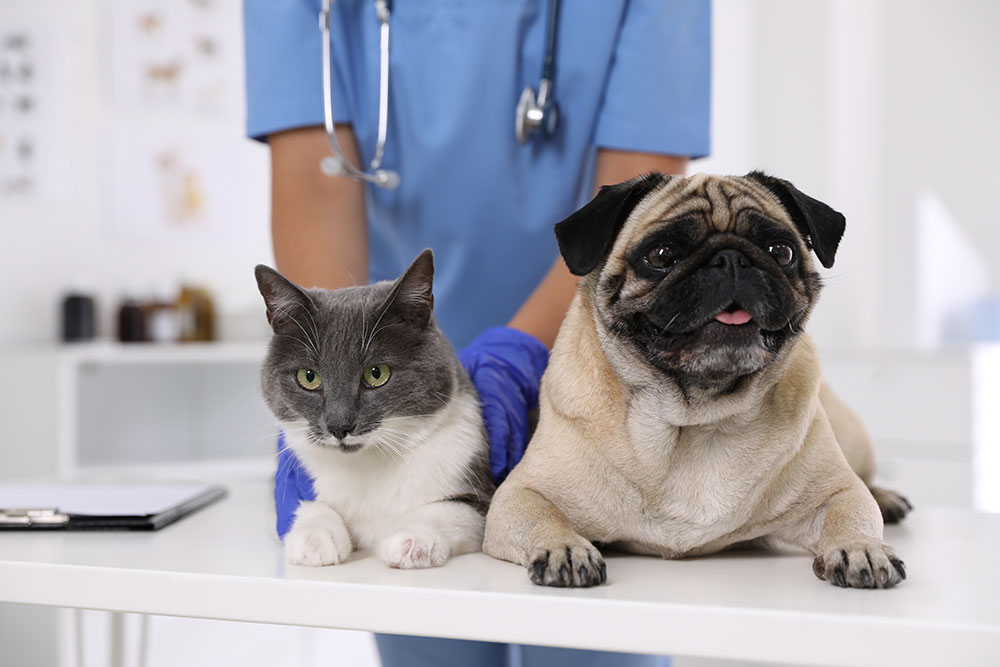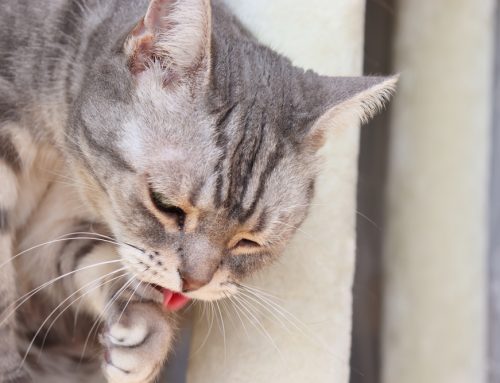At Heartland Veterinary Hospital, we understand how overwhelming it can feel to stay on top of your pet’s health. Between vaccines, parasite prevention, nutrition, and check-ups, the list of responsibilities can seem endless. But here’s the good news: with a proactive, preventive approach, many of the most serious pet health issues can be avoided entirely.
If you’ve ever asked yourself, “What diseases are actually preventable?”, you’re in the right place. In this guide, we’ll break down the most common preventable conditions in pets, explain how vaccines and wellness care protect your furry family member, and share simple strategies to keep them healthy, happy, and by your side for years to come.
What Are Preventable Diseases in Pets?
Preventable diseases are health issues that can be significantly reduced—or eliminated entirely—with consistent care. These include:
- Infectious diseases like rabies, distemper, and feline leukemia
- Parasite-borne illnesses like heartworm, Lyme disease, and intestinal worms
- Chronic conditions such as obesity, dental disease, and diabetes—many of which are influenced by diet and daily routines
Why Prevention Matters
Preventive care protects more than just your pet’s health—it protects your peace of mind. It’s less costly than treating illness, reduces your pet’s stress, and ensures early detection of issues before they escalate. In short: prevention is an act of love.
Vaccines: The First Line of Defense
Vaccinations are foundational to your pet’s well-being. They stimulate the immune system to recognize and fight dangerous viruses or bacteria—before those invaders can cause harm.
Core Vaccines Every Pet Needs
For dogs:
- Rabies – Fatal and transmittable to humans; required by law
- DHPP – Protects against Distemper, Hepatitis (Adenovirus), Parvovirus, and Parainfluenza
For cats:
- Rabies
- FVRCP – Shields against Feline Viral Rhinotracheitis, Calicivirus, and Panleukopenia
These vaccines are considered “core” because the diseases they prevent are severe, widespread, and often life-threatening.
Non-Core Vaccines Based on Lifestyle
Some vaccines are optional—but strongly recommended based on where you live, how your pet socializes, and other risk factors:
- Bordetella (Kennel Cough) – Recommended for dogs that attend daycare, grooming, or boarding
- Leptospirosis – A waterborne bacterial disease, especially prevalent in outdoor or rural areas
- Lyme Disease – Carried by ticks in certain regions
- Feline Leukemia Virus (FeLV) – Important for outdoor cats or those in multi-cat households
Learn more about how to tailor your pet’s protection plan with these Canine Preventive Guidelines and review vaccination insights from AVMA.
Vaccine Safety: What to Expect
Most pets tolerate vaccines very well. Mild reactions like slight fatigue, swelling at the injection site, or reduced appetite are normal and short-lived. Severe reactions are rare, and our team monitors your pet closely during and after administration.
If you have concerns about vaccine side effects or scheduling, we’re always here to help. We customize vaccine timing based on your pet’s age, health history, and exposure risks.
Parasite Prevention: Year-Round Protection
Parasites can cause more than discomfort—they often carry diseases that affect both pets and people. Preventing them is easy and far less distressing than treating an infestation or infection.
Fleas & Ticks
- Fleas can trigger allergic reactions, transmit tapeworms, and infest your home.
- Ticks are known for spreading Lyme disease and other tick-borne illnesses.
Explore the CDC’s guide to flea and tick prevention for additional protection strategies.
Heartworms
Heartworm disease is transmitted by mosquitoes and can be fatal if left untreated. Even indoor pets are at risk. Prevention comes in the form of monthly chews, topicals, or annual injections.
Intestinal Parasites
Roundworms, hookworms, giardia, and other parasites are often invisible—but detectable through routine fecal exams. This AAHA resource explains why year-round protection is critical.
Nutrition and Weight Management: Building a Healthier Pet
A well-balanced diet supports immune function, joint health, digestion, and more. Obesity, on the other hand, is one of the most common preventable conditions in pets—and it increases the risk of arthritis, heart disease, and diabetes.
Healthy Habits to Start Today:
- Measure food portions based on age and weight
- Choose high-quality, life-stage appropriate food
- Limit treats to no more than 10% of daily calories
- Avoid table scraps and toxic foods
Explore trusted tips from the Pet Obesity Prevention Center to help your pet stay lean and active.
Dental Disease: The Hidden Threat
Dental disease affects more than your pet’s breath—it impacts their heart, kidneys, and overall comfort. Regular cleanings, dental chews, and home brushing routines can make a big difference.
Learn to do a quick mouth and body check with this DIY pet checkup guide from Kinship.
The Power of Annual Wellness Exams
Routine checkups allow us to catch small issues before they become major problems. During an exam, we evaluate:
- Weight trends and body condition
- Dental and oral health
- Skin, coat, and nail condition
- Heart and lung function
- Signs of arthritis or pain
- Bloodwork to detect hidden concerns
Here’s why these regular visits are so important.
Bring a stool sample for testing, a list of any supplements or medications, and details on any changes in appetite, behavior, or energy levels.
Frequently Asked Questions
Q: My pet stays indoors—do they still need vaccines and preventatives?
Yes. Viruses and parasites can still enter your home through shoes, other pets, or open windows. Indoor pets remain vulnerable to some preventable conditions.
Q: How often should my pet be vaccinated?
Vaccination schedules vary depending on your pet’s age, health status, and previous vaccinations. We’ll work with you to build a custom plan.
Q: Are flea, tick, and heartworm preventatives safe?
Yes. These medications are rigorously tested and extremely effective. We only recommend products we trust—and use on our own pets.
Your Partner in Proactive Pet Care
At Heartland Veterinary Hospital, we believe prevention is one of the most powerful tools in veterinary medicine. When you prioritize vaccines, parasite control, nutrition, and routine exams, you’re not just avoiding disease—you’re investing in a longer, happier life for your pet.
If you’re ready to create a customized prevention plan or need to catch up on wellness care, we’re here to support you every step of the way. Contact us today to schedule an appointment or speak with one of our caring team members.
Because a healthy pet is a happy pet—and that means a happier you.









Leave A Comment